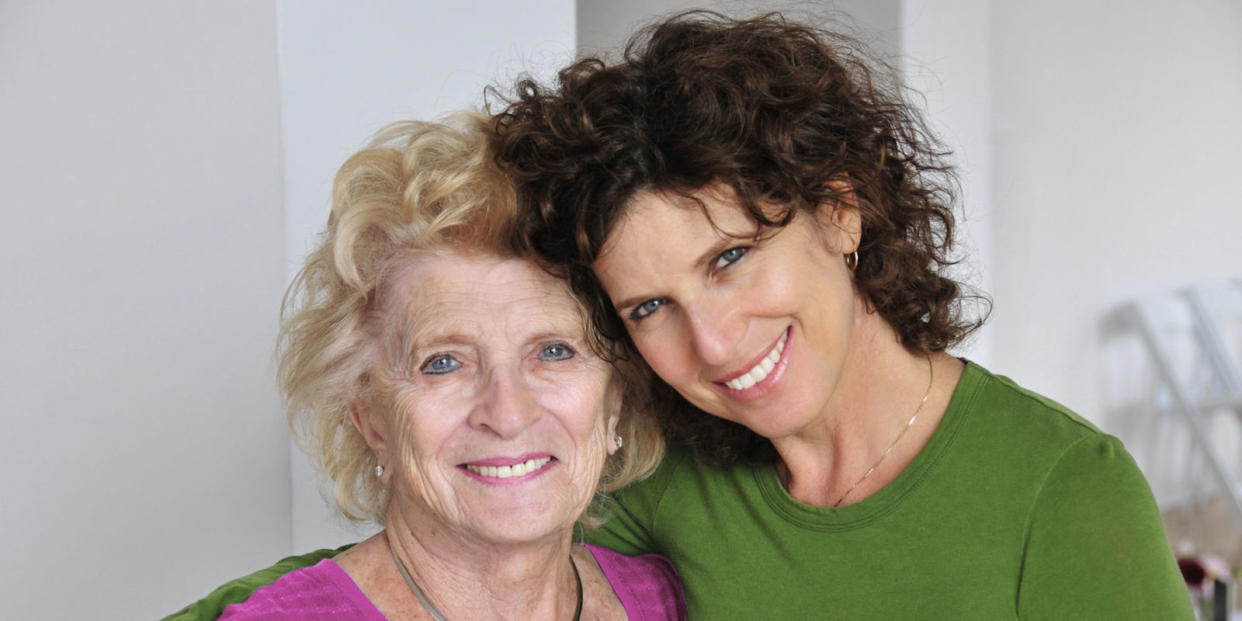I Spent My Life Resenting My Overly Critical Mother—Until I Reached My Breaking Point

Mildred Kirschenbaum, 94, always prided herself on telling her daughter exactly what she thought of her. Gayle's face: in need of a nose job. Gayle's relationship status: single, clearly because she was too choosy. "According to my mother," Gayle says, "I couldn't do anything right, and my two brothers could do no wrong."
Because of Mildred's harsh criticism, Gayle's childhood home in suburban New York felt like enemy territory, filled with humiliations so searing that Gayle graduated from high school early so she could escape to college. A successful career as a TV producer and filmmaker followed, as did a healthy distance-Gayle lived in New York City, while Mildred moved to Boca Raton, FL- and yet their relationship still struggled. "I felt angry all the time," says Gayle.
"According to my mother," Gayle says, "I couldn't do anything right, and my two brothers could do no wrong."
Shortly after her 50th birthday, Gayle hit a breaking point. To achieve lasting happiness, she knew she had to find peace. She decided to apply her professional skills to trying to heal the relationship-she would make a documentary about her journey to forgive her mother. Surprisingly, Mildred agreed to participate: "I did it for Gayle's peace of mind," she says.
In the first few scenes of the resulting 2015 film, Look at Us Now, Mother!, Mildred snipes at her daughter about her makeup. When they aren't fighting, Gayle searches through family documents and speaks with relatives to find out more about Mildred's life. She uncovers a childhood marred with poverty and suffering-Mildred's immigrant father twice attempted suicide, and her sister died as a baby.
Gayle had always felt held captive by her troubled childhood, but Mildred, she realized, had been unhappy too. The revelation awakened Gayle's empathy. "When those insults and criticisms happened, I looked at her as someone who was wounded and needed love herself," she says. Gradually, understanding her mother's past and adjusting her expectations of their relationship led Gayle to forgive Mildred.
Mother and daughter still fight. Sometimes they hang up on each other, then call right back. Each is, in a sense, Gayle says, the other's closest friend.
In the final scenes of Gayle's documentary, mother and daughter are traveling together, posing arm in arm for photos. "I'm happy that we're friends, Gayle," says Mildred. "I love you."
"I love you, Mom," Gayle responds. End scene.
You Might Also Like


